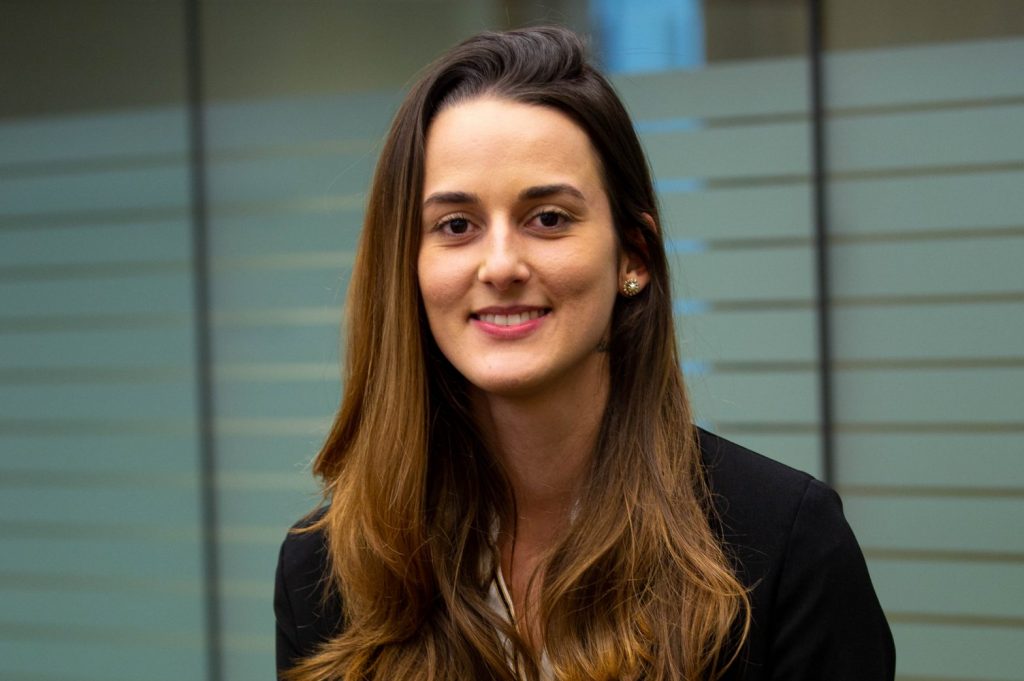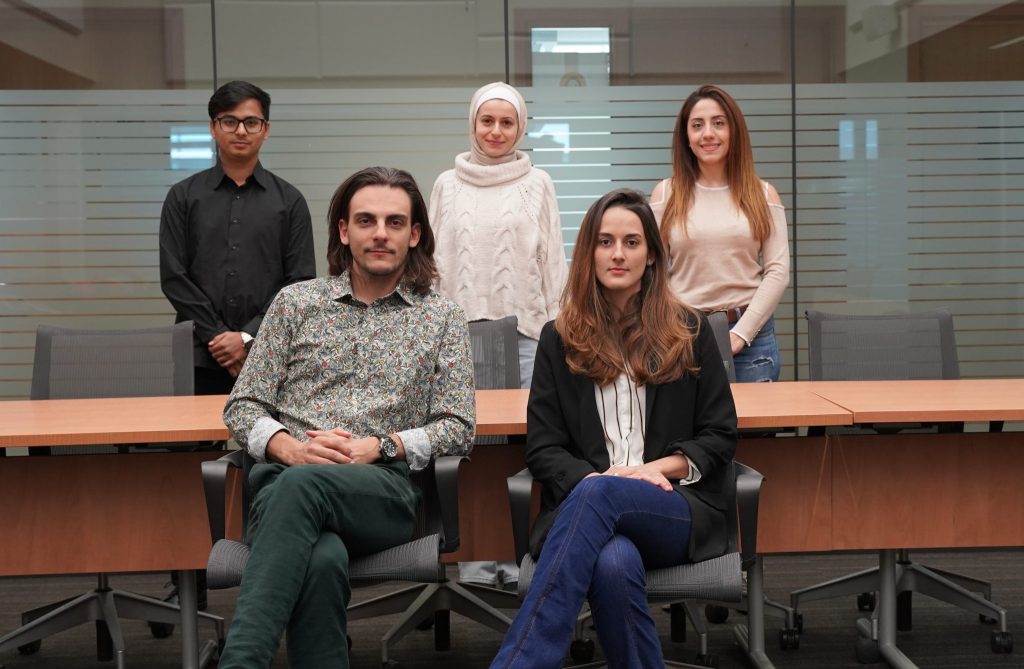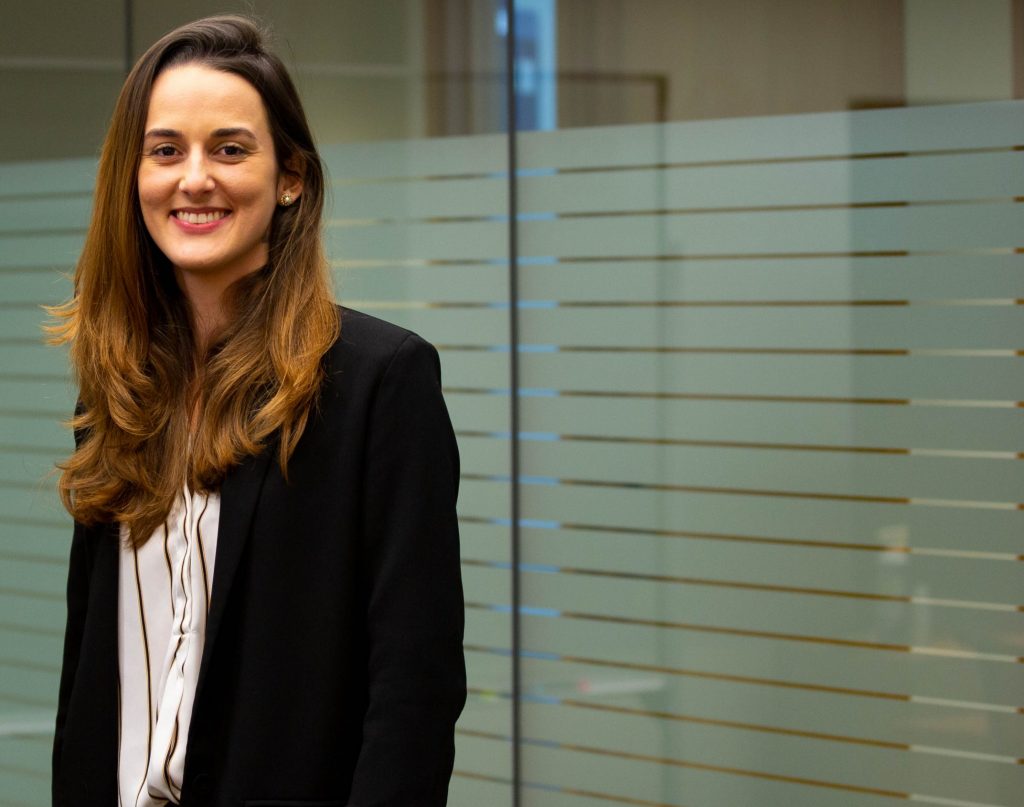Thais Ayres Rebello is a PhD Student (Civil Engineering), under the supervision of Drs. Rehan Sadiq and Kasun Hewage, developing methods to increase sustainability with urban water systems through a Life Cycle Thinking perspective. She is working towards completing her degree in 2024.

Why did you choose to pursue studies at UBC Okanagan?
I chose the UBC Okanagan campus because it allowed me to work with leading researchers in the life cycle assessment, and the urban water management field. Furthermore, the research developed by the Life Cycle Management group aligned perfectly with my interests and career endeavors.
What has the experience been like thus far?
While COVID-19 has imposed many challenges in my personal life, I believe UBC has strived to facilitate my experience by creating different resources. Coming to campus, attending classes, and sharing my experiences with colleagues has improved my PhD experience even further.
Describe your research
My work is focused on improving the sustainability of urban water systems through the Life Cycle Thinking perspective. The main idea is to develop a new way to think about urban water and sustainability, helping to develop new management techniques and technology in the future.
What do you enjoy about working with your supervisor and research group?
We have an amicable and approachable group, and I can count on different levels of support for my research and other activities. Furthermore, this research group challenges my understanding of my research field, improving my hard and soft skills through the process.
Can you talk about the importance of the EGSS to your experience at UBC Okanagan?
The EGSS has been very important for me in various instances. In the beginning, it allowed me to make friends and insert myself into the academic community. Now, the EGSS is developing my organizational skills and solution-seeking mindset, and I can make other students’ voices heard through my representation and services. We can also collectively leave our small mark in our community through the events we manage and facilitate.

What do you like to do when you are not in the lab?
I highly enjoy reading and writing non-scientific books, having one of my works already published. I also enjoy staying active, walking around town, learning the violin, and singing.
What extra-curricular activities are you involved in? Why is it important to you to be involved?
I am currently the Vice-President of Finances for the Engineering Graduate Students Society (EGSS) and a member of the Graduate Student Advisory Council. These activities allow me to participate in student-related issues and make other students’ voices heard. Furthermore, I am also a member of the Future Waters group, founded by UBC Vancouver members, and I am helping to organize the WEST conference for 2022. All these experiences have improved my communication and organization skills, and my networking in Canada. Other than that, these groups and activities have allowed me to express my research and have deep conversations about my interest topics.
Looking to the future, where do you see yourself? And what will you be doing?
Hopefully, I will be able to apply my skills and training to become a researcher and/or professor at a university in the future. The short-term future includes post-doctoral fellowship applications and improving my academic resume towards this goal.
Best advice you have received so far at UBC?
The best advice I received was to make connections during my stay by participating in committees, volunteer work, and other social events. This advice has shortened my adaptation period, made contact with brilliant students and researchers, and improved my communication skills.
Advise you’d give to a student considering UBC Okanagan for their graduate studies?
During your graduate studies, try your best to remember that the final product of your education is not the publications (although important) and your thesis/dissertation (although vital!), the product of your graduate studies is you. Hence, challenging your perception, changing your mind, being involved in the community, talking to other people will improve your soft and hard skills efficiently. Try to make space to join a committee or volunteer in a position that is interesting to you. You will be surprised at how much you can learn through experiences not directly related to your research.
